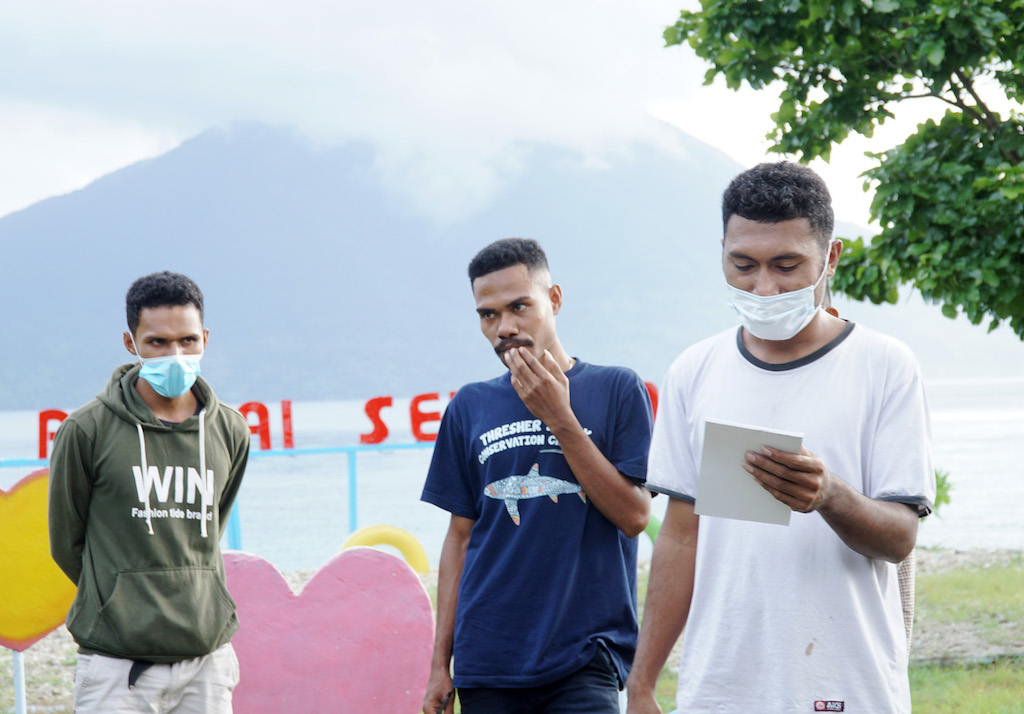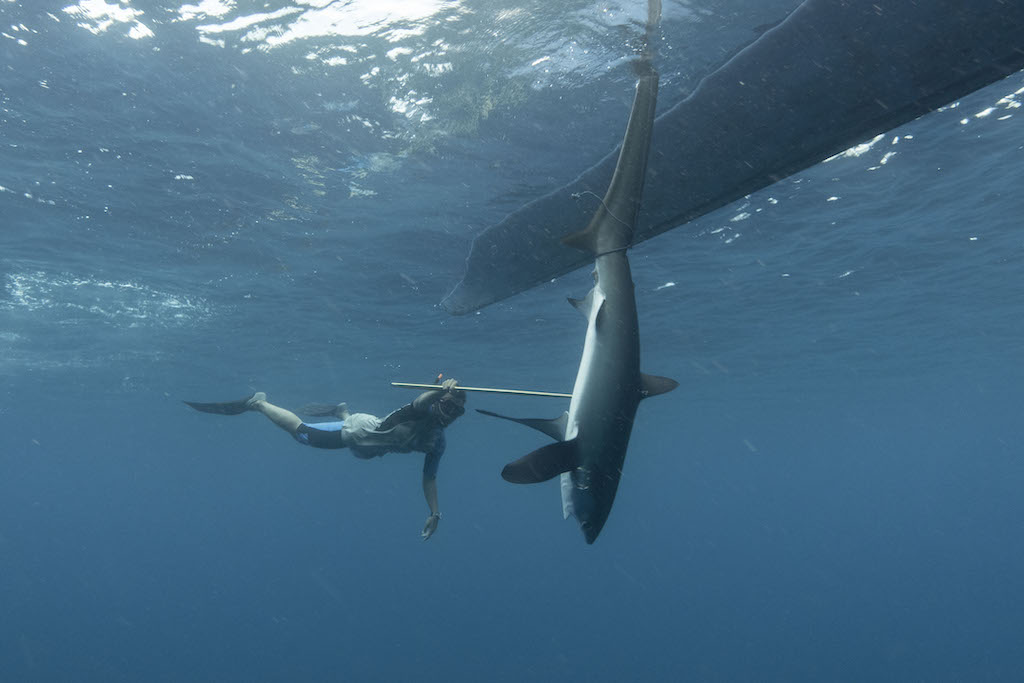Its rodent-like snout has earned it the local nickname hiu tikus, meaning “rat shark.” It’s hardly an intimidating name for an apex predator, and that may be partly why thresher sharks are being fished to extinction.
The thresher shark, which is easily identifiable by its long scythe-like caudal fin, was listed as an endangered species by the International Union for Conservation of Nature (IUCN) in 2019. In Indonesia, it’s the second most landed shark species.
And now a young man leads a band of volunteers in protecting the neglected thresher sharks from extinction in the archipelagic country.

For Rafid Shidqi, 26, the idea of being a marine conservationist had never crossed his mind. That is, until fate pointed him towards the deep blue sea when the doors to medical school shut on him.
So Rafid enrolled in the Faculty of Fisheries and Marine Science at the General Soedirman University in Purwokerto, Central Java. Following graduation, the South Tangerang resident was never far removed from marine conservation early in his career, but found his calling to protect thresher sharks upon realizing a notable lack of conservation efforts for the species.
In 2018, Rafid founded the Thresher Shark Indonesia (TSI) project with colleague Dewi Ratna Sari.
“Initially, the funding [for TSI] was for a short term period to find out more about the thresher shark (alopias pelagicus) fishing practice in Alor, East Nusa Tenggara (NTT). It turned out that the response from the local government and community was good. Therefore, we carried on with the project,” Rafid said.
To strengthen its position, in 2020, Rafid and his colleagues formalized the initiative by establishing a foundation called Yayasan Teman Laut Indonesia. The road to conservation is long and challenging, but this young local NGO is beginning to make waves, one rescued thresher shark at a time.
The importance of thresher sharks
Sharks play a significant role in the marine ecosystem as apex predators. Even so, they are one of the most threatened species in the world. According to new research published in the science journal Nature, the global population of oceanic sharks and rays have declined by more than 70 percent since 1970.
Indonesian waters have a great diversity of sharks with approximately 118 species belonging to 25 families. As many as 25 percent are classified as “threatened” by the IUCN, which is not helped by the fact that sharks, in general, reproduce slowly. Despite this, only whale sharks (Rhincodon typus) are fully protected by the country’s law.
“Based on data from the Ministry of Marine Affairs and Fisheries, thresher sharks are second only to silky sharks (carcharhinus falciformis) as the most landed species in Indonesia between 2002 to 2016. When I started this project, there weren’t any initiatives that focused on its conservation,” said Rafid.

And that is partly why Rafid and his colleagues picked Alor as the site for their project, as fishermen in the regency have been catching thresher sharks for their fins and meat, especially during the absence of other fish species.
“People [in Alor] rely heavily on threatened fish species, and we are looking at how we can help them lessen their dependence on shark fishing,” he said.
In 2015, Pantar Strait, which stretches between Alor and Pantar Islands but still administratively located in Alor regency, was declared a marine protection area (MPA) by the Fisheries Ministry. As part of their research to push for conservation, TSI has installed external satellite and internal acoustic tags on the thresher sharks.
“The purpose of tagging is to investigate the activities of thresher sharks in the MPA, for example, to detect whether they give birth or live in a critical habitat. With this information, we would like to encourage the NTT provincial government to create a site-based protection for the sharks,” Rafid said.
The economic balance
Conservation requires a holistic approach, and communities that overwhelmingly rely on the thresher shark for food and their livelihood should not be ignored. Reducing Alor’s dependence on shark fishing takes time, but fortunately, residents are open to the initiative.
“Here [in Alor], they tend to be open to embrace change. But if there is no viable alternative, they will keep insisting on catching sharks,” Rafid said.
“Some of them said they would not mind if thresher shark fishing was prohibited as long as better alternatives are provided. At the moment they show preference for tuna fisheries because they’re a valuable fish, but [the fishermen] don’t have skills and facilities to be able to make the transition.”

And Rafid knows TSI alone, with its limited funding, can’t save the thresher sharks.
“We have engaged many local government agencies. They are willing to assist in the process of implementing the project. Last year, we proposed the issuance of a regency regulation that guarantees shark-dependent communities be provided with financial support and infrastructure to move towards other fisheries,” Rafid explained, while noting that the regulation has not been passed.
“Before we commenced our project, local communities didn’t know that thresher sharks are threatened with extinction and should be protected. Now they have a better understanding.”
If you would like to learn more about or donate to TSI’s marine conservation efforts, you can visit their official website here.
Read more feature stories on Coconuts Bali here.



